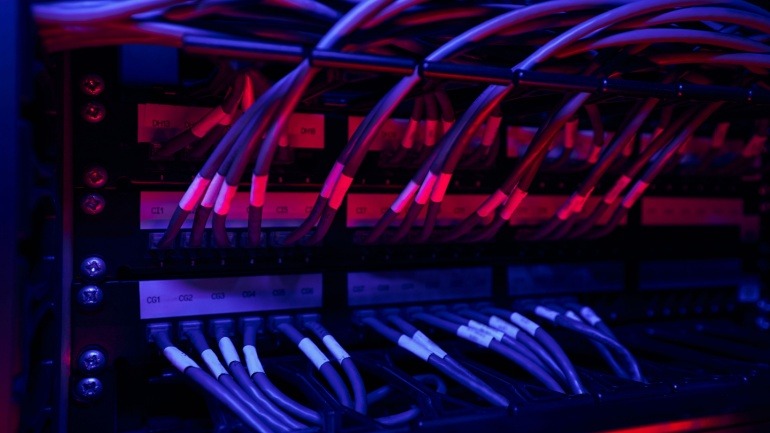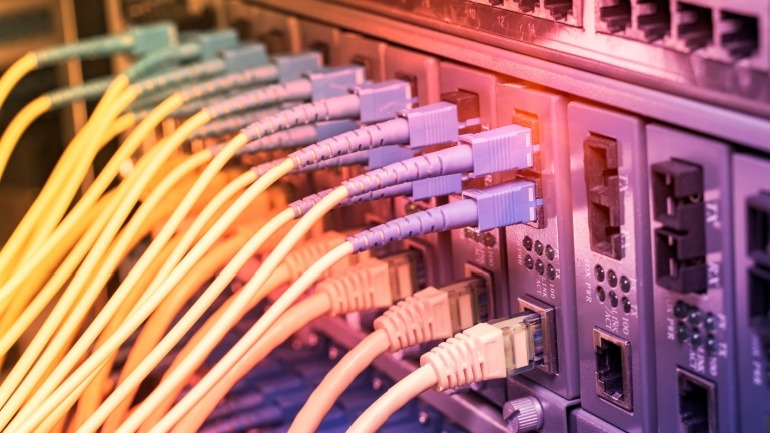CommScope and Emtelle have teamed up to optimize FTTH deployments in North America, integrating CommScope’s Prodigy connectivity and Emtelle’s blowable fiber optic micro-cable. This collaboration promises enhanced network installations with improved cost efficiency and high-quality network performance.
Nokia is revolutionizing enterprise network infrastructure with its Aurelis Optical LAN. This innovative fiber-based solution offers secure, scalable connectivity ideal for modern workspaces. With up to 70% cabling reduction and 40% lower power consumption, it presents a sustainable, cost-effective alternative.
EXA Infrastructure is boosting its global fiber capacity by 15% with Nokia’s cutting-edge optical solution, offering 1.2 Tbps per channel. This upgrade in EXA’s fiber network, spanning 155,000 kilometers, enhances connectivity, reduces power usage by 50%, and supports both terrestrial and subsea networks.
AT&T has set a new record in fiber-optic networks, achieving 1.6 Tbps over a 296-km commercial route between Newark and Philadelphia. This milestone, powered by Ciena and Broadcom technology, gives AT&T an edge in the telecom race.
Globe Telecom’s role in managing the Philippines landing for the MYUS cable system marks a pivotal moment in global VoIP and telecommunications. The 19,000 km cable enhances digital connectivity, linking Malaysia and the US. This $720 million investment will provide 15 Tbps per fiber pair, elevating internet speed and reliability.
AT&T and Corning have solidified their partnership with a $1 billion multi-year agreement for fiber products, making AT&T Corning’s biggest customer. This venture supports AT&T’s fiber and 5G expansion, leveraging Corning’s expertise to deliver high-speed internet.
Residents and business owners in Colne, Lancashire, will soon benefit from enhanced services thanks to UK full fibre broadband provider brsk. By investing in a new full fibre network, brsk aims to deliver symmetrical speeds of up to 2Gbps, enhancing connectivity for approximately 11,000 homes and businesses.
Deutsche Telekom has joined the German Federal Association for Fiber Optic Connections (BUGLAS), marking a significant step in fiber infrastructure promotion. This move aims to enhance nationwide fiber expansion through partnerships. However, it has sparked mixed reactions, with critics concerned it might hinder Germany’s overall fiber rollout and benefit Deutsche Telekom’s market dominance.
Nokia and ZCorum have developed an innovative DOCSIS Provisioning Adapter (DPA) to aid cable operators in transitioning to fiber networks. This application leverages existing DOCSIS systems while provisioning Optical Network Terminals on Passive Optical Networks. The DPA streamlines the fiber transition, enhancing scalability, performance, and reliability for cable operators.
T-Mobile US reported strong Q2 2024 performance, adding over 777,000 postpaid phone customers and 406,000 home internet users. Surpassing the 100 million postpaid customer mark, the company revised its full-year guidance upwards. Despite slight churn rate increases, significant investments in fiber and prepaid services underscore T-Mobile’s growth strategy in the VoIP space.













